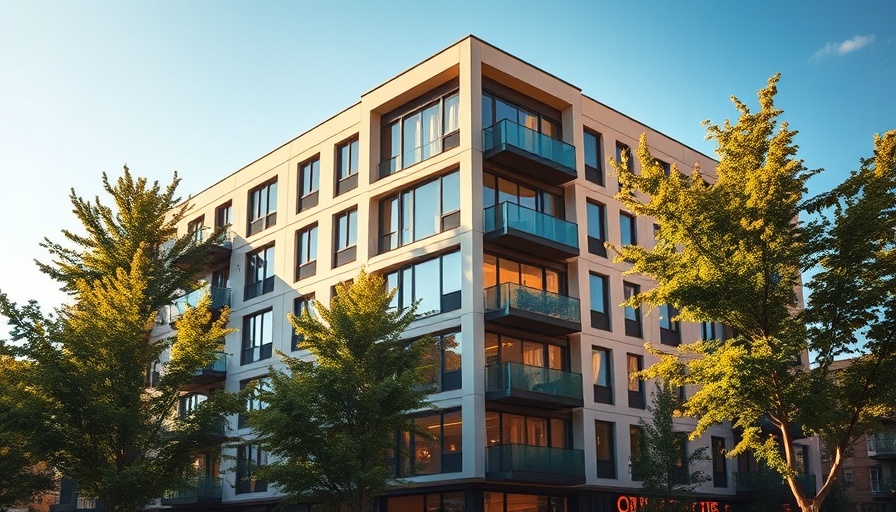
The Impact of Leasehold Reform on Property Values: A Closer Look
The UK government is promoting reforms aimed at making leasehold properties 'easier and cheaper.' While the messaging is appealing, the complexities underlying these reforms may lead to unexpected consequences for property owners and investors. Understanding these implications is essential for anyone looking to engage with the UK property market.
Understanding the True Costs of Ownership
The proposed Commonhold reforms intend to shift the management of costs from freeholders to individual flat owners. This shift does not eliminate expenses; rather, it changes how they are perceived. Currently, freeholders carry significant responsibilities that include capital expenditure forecasting and building management. Under the new system, homeowners will assume these responsibilities, which likely means an increase in their financial burden.
For example, issues like lift failures or unexpected maintenance costs will fall directly on the property owners instead of being shared. This shift means that service charges and contributions to reserve funds will have to cover a wider array of potential costs, which could ultimately adjust property valuations. Homebuyers may see this transparency as a negative factor, transforming how they value flats and potentially leading to a depreciation of property values.
Commonhold: More Than Just Transparency
Commonhold is promoted as a solution for increased transparency and accountability in ownership, but it is crucial to clarify that it also redistributes financial risk. If a neighbor fails to contribute to necessary payments, the burden of those costs must be covered by remaining owners. This could rapidly escalate financial pressures on individual flat owners, impacting their ability to maintain their property.
The reforms imply that homeowners will now face their liabilities upfront. Those costs will be evident from the start and can have a significant impact on the market value of properties. Instead of properties being evaluated purely based on their living qualities, buyers will now consider their full financial responsibilities, which may negatively skew property values.
Property Market Reactions: A Price Correction?
The changes ushered in by the leasehold reform are not necessarily indicative of market failure. Rather, they can be viewed as a necessary price correction. The past decades have seen buyers, particularly Baby Boomers and Generation X, benefit from leaseholds due to less visible responsibilities. With the new visibility of ownership costs, the financial landscape is changing.
This realignment may create a more competitive and realistic property market that reflects actual living costs and risks, rather than one propped up by hidden or shared liabilities. Investors might find flat values adjusting over time, indicating a more stable pricing model in line with current ownership liabilities.
Future Implications for Property Owners and Investors
For property owners, adapting to these changes will require vigilance and financial planning. It’s not merely about acquiring a flat; it’s about becoming prudent investors who are aware of their ongoing responsibilities. Future valuations will likely tilt towards those properties equipped for unforeseen expenses, signifying a shift in the market's focus.
Investors may now need to reassess their strategies when purchasing flat properties, accounting for a range of ongoing costs that will be factored into their potential returns. Understanding these dynamics enhances decision-making and could even reveal opportunities for those prepared to navigate the changing landscape.
Conclusion: Stay Informed and Adapt
In light of these developments, property owners and investors must stay informed and adaptable. The implications of leasehold reform extend far beyond initial acquisition prices; they can reshape the future of property ownership in the UK. By being aware of upcoming responsibilities and adjusting expectations accordingly, stakeholders can better position themselves in this evolving property market.
 Add Row
Add Row  Add
Add 





 Add Row
Add Row  Add
Add 








Write A Comment